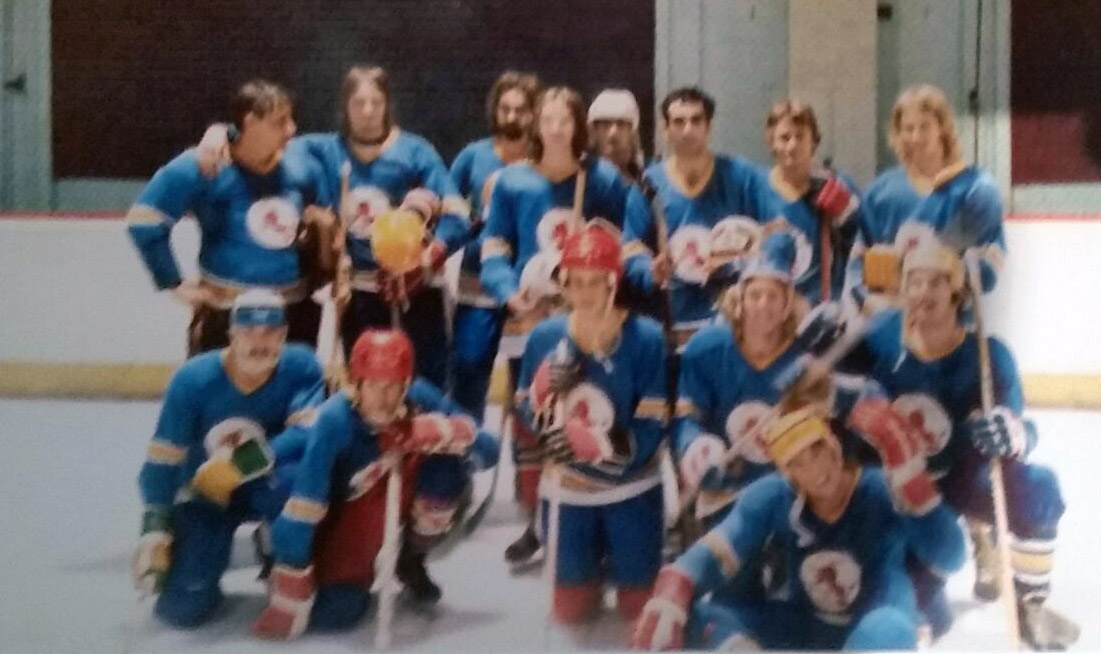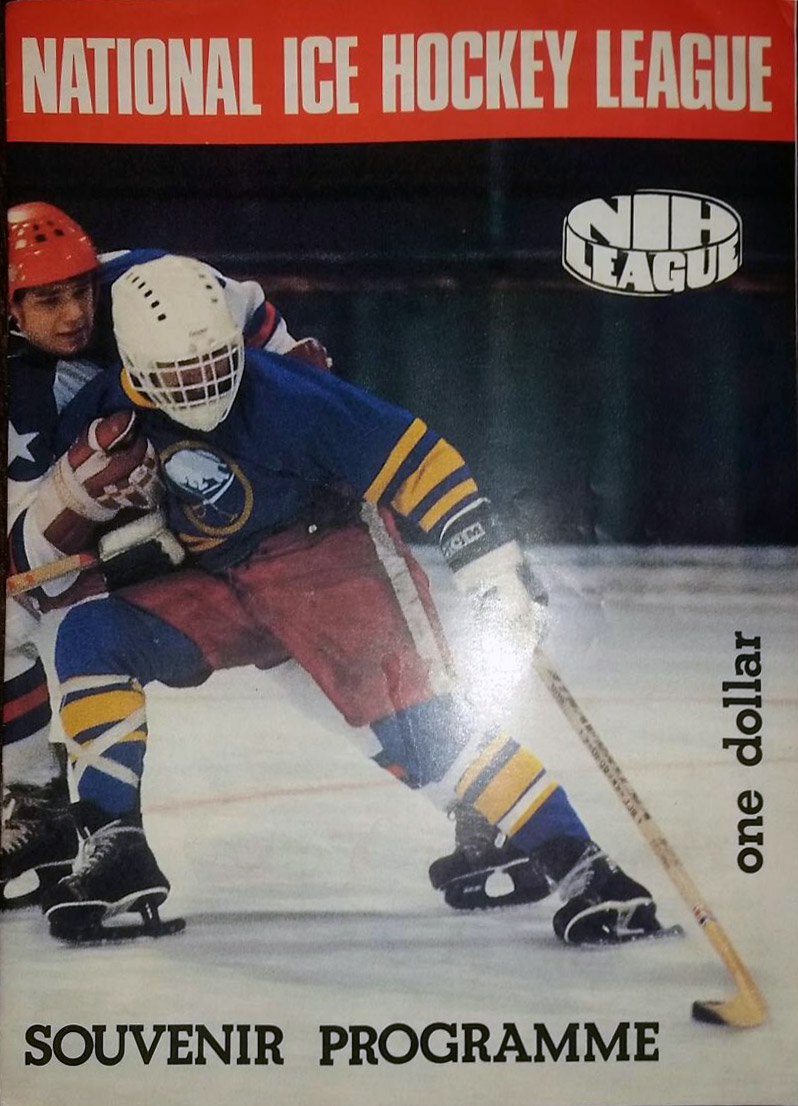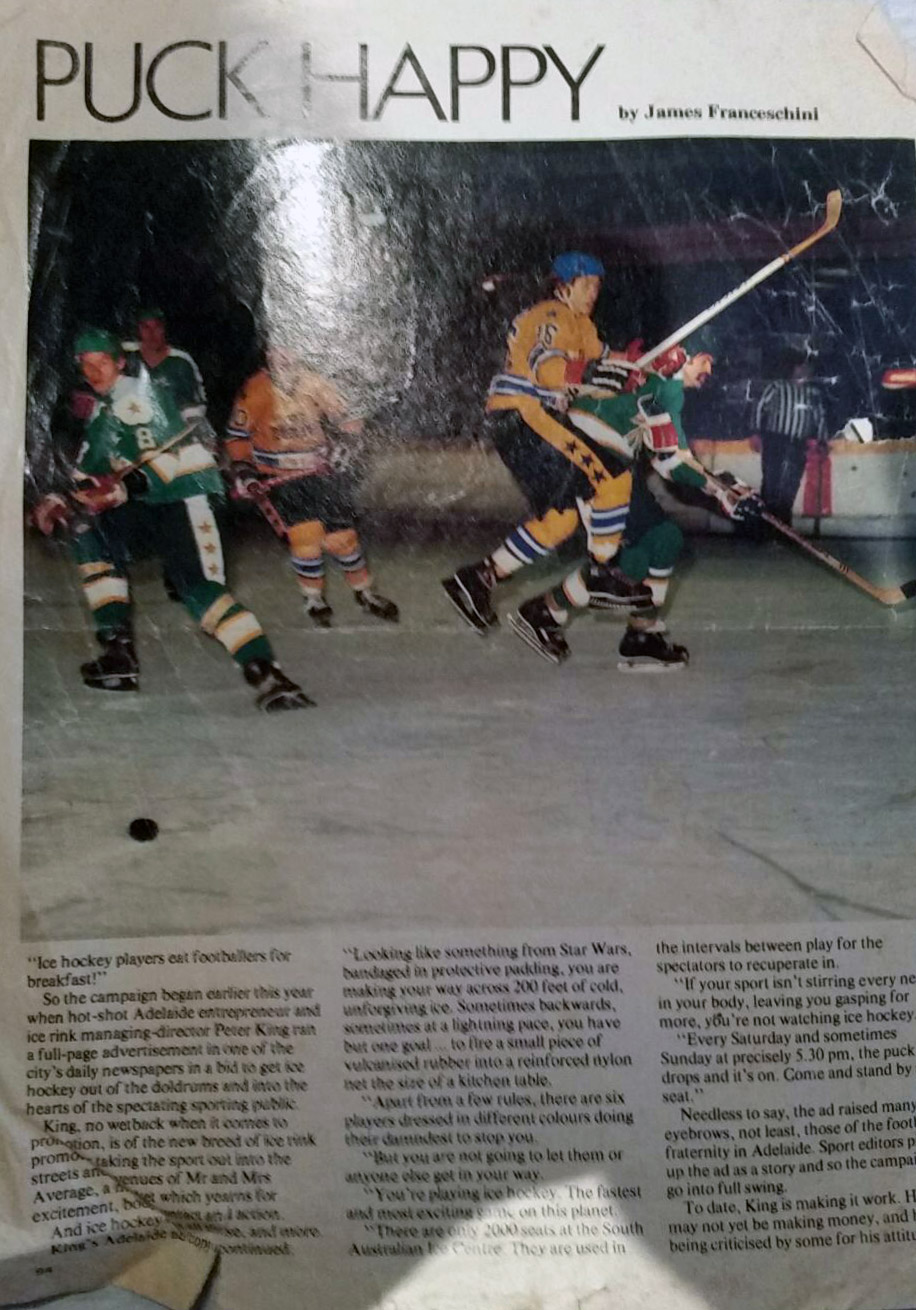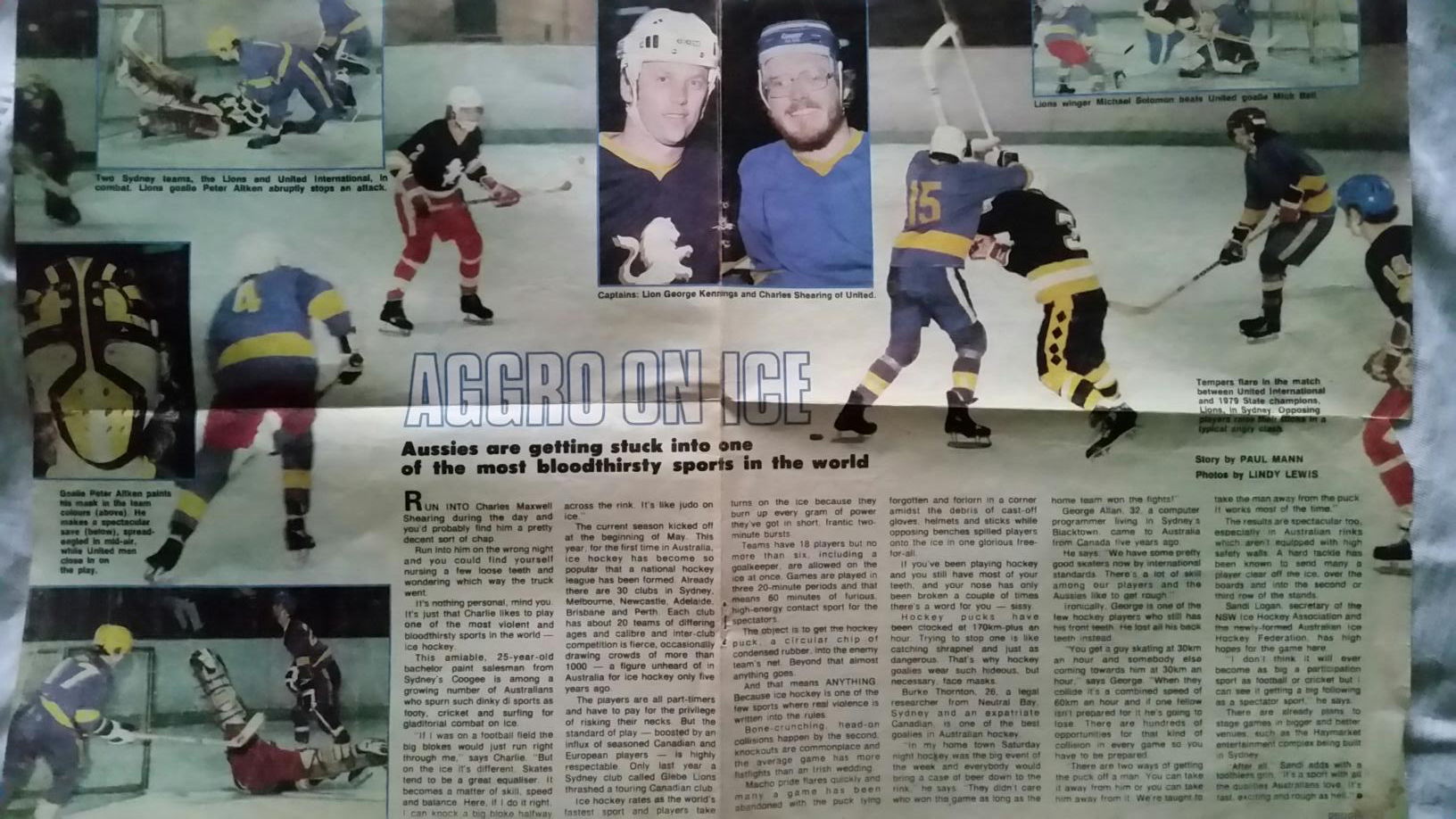CAREER SUMMARY
Birth
October 5th 1947
Canada
Clubs
NSWIHA Glebe Lions, NIHL Sydney All-Stars, NSWIHA Canterbury Ice Hawks, OiHAN Northstars 55s
Goodall Cups
1980
World Championships
Nil
Foundation player and captain, NIHL
Goodall Cup MVP
NSW state captain and coach
MONEYLESS FOR A WIN or a loss or even petrol, men in senior hockey in the Seventies played for the love of the game, and the fellowship of the suburban barbeque. The talented Canadian expat who arrived in Australia in 1973, captained and coached New South Wales on many occasions. St George player and ice racer Jim Lynch recalls it was his job to stop Kenning "as he was very fast, and when he had a shot it went in from anywhere". [1]
When Kenning's state team met Victoria at St Moritz Ice Palais in Melbourne in 1974, the outcome was the third of a five championship win-streak for coach Elgin Luke. Protecting the house for Roddie Bruce, he shared the blue line with Allan Harvey, Barry McLean and Sandi Logan, against fourteen of the 19-man Victorian squad who represented Australia in the C-Pool Worlds in Grenoble six months earlier.
"Unselfishly, [Kenning] stepped up to "condition" the NSW players who were selected for the Australian team for the 1974 C Pool Championships in Grenoble, France," recalls vice-captain, Allan Harvey. "At the old Homebush rink, George would have us skate and skate and skate until we literally dropped—seriously, we were spent at the end of each session". [1]
Next season, Kenning won the John Nicholas Trophy, the Goodall Cup MVP. He led the reformed Glebe Lions to the CP Air Cup in 1978, the NSW state premiership. Setting a new state record with a fourteenth premiership, his Club dominated the local competition in the Seventies — three straight, 1973 to '75, and three more 1978 to '80. The Lions made Australian Club Champion in 1975 for the second time.
In 1979, the re-located Club played the first organised hockey at the new Blacktown International ice rink against a local All-stars side. "The inspiration for us young players," notes Peter Butcher. "Before we even saw videos of the NHL it was these players that inspired us". [1]
The new rink needed a hockey program from the get-go, according to teammate and state secretary Logan, and although Roy Philpot was not keen on the prospect of driving so far west, the association and many of the Lions players arranged to re-locate. "We ran practises for ourselves," he says, "as well as for the youngsters and others who had become interested in the game...and we placed import players in-situ to help coach and grow the game there".
But after just 3 or 4 months, the manager Tom Breur kicked the club out of the rink over something minor, and they packed their gear and never went back. The original Blacktown club began. "They've seen some great prospects walk through those doors and learn the great game of (ice) hockey," says Logan.
The Lions moved to Canterbury in 1980, when ice hockey returned there for the first time in two years in a revamped state league. Kenning and the reinvented Glebe Lions shared the ice with United International as the Canterbury Ice Hawks with administrator Roy Philpot, Keith Willmott, Igor Sedivy, Ron Mann, Robin Dewhurst, and Sub Majsay. They had Logan in defense; Peter Aitkin, a 29 year-old state player in his fifth year of Australian ice hockey; Chul-Ho Kim, the South Korean national player who recently migrated to Sydney; Canadian Dan Pedersen, Swiss player Pier Branaad, and young Australian centre, Kevin Price.
"This will be one of the best Canterbury teams," said club official Harry Cameron. "We've got local players in the A-grade team who will benefit greatly from the overseas players who have joined us this year." Founded in 1923, the Glebe Lions went out in a blaze of glory, with George Kenning guiding them through the most successful record-breaking adventure of all time. The club that won 16 premierships, more than any other, merged with United International.
At the opening of the rink at Phillip in the ACT, the curtain-raiser on ice hockey in the Federal capital, Kenning played in the NSW State Team with player-coach Mike Johnston, who went on to the NHL, against Elgin Luke's Victorian All-Stars. Captain of the Sydney All-Stars, the 1980 National Ice Hockey League Champions, he finished equal-top on goals with Darrell McDonald, and third on points (19 goals 30 assists). [5] Man of the Match in the second game of the finals series, he won credit as the inspiration behind his team's 4-2 win, scoring twice and assisting a third. [3]
In a busy year, Kenning won his first Goodall Cup representing New South Wales coached by Dan Pedersen, and met the visiting Trail Blazers with the Sydney All-Stars in 1980. The commercial league club from British Columbia included former Trail Smoke Eaters, the team that twice won the world championship representing Canada. Channel 7 televised the series from Prince Alfred Park Iceland in Sydney on Sunday June 1st 1980. The All-stars also played the Oakleigh Aces from Melbourne.
According to Logan, George Kenning was and is a hockey player's player. "He had all of the goods, and the most impressive attribute he used to tremendous effect from within his arsenal, was a wickedly hard and accurate front foot snap-slap shot. George was a very strong skater; he was a hard hitter (you knew when you'd taken a Kenning check); he played for keeps; he was a heads-up guy very rarely surprised by any of the opposition; and he had an uncanny ability to get his snap-slap off in the most difficult and tight situations.
"It didn't matter what space he had with which to work, how much time he had before he might be closed down—he got that shot off from anywhere, every time—and he scored regularly with it. He was also a classic gentleman off the ice. He didn't go for bravado and bragging; he didn't carouse into the night (as some of us did from time to time...); he didn't waste words". [1]
Kevin Price credits Kenning with teaching him leadership and how to be a player. Troy Morgan says he had a few coaches over almost 40 years in the game, and George is at the top of the list. "As a coach and player I can look back and see what George taught me: team work, confidence in your team mates, lead by example". [1]
Kenning continued to coach for some years, including the unsuccessful NSW Under-18 Tange team in Melbourne in 1987. He still played in local leagues 30 years later, including the Northstars 55s. [1] Over a career at the top of at least 15 years in Australia, George Kenning consolidated a reputation as an outstanding player and coach at both local and state levels.
Ross Carpenter, 'Kenning, George (1947- )', Legends of Australian Ice, Melbourne, Australia, http://icelegendsaustralia.com/legends-2/bio_kenning.html, accessed online June 17, 2025.
Aggro On Ice article by Paul Mann, Pix-People, 1980.
[3] Powderhound ski magazine, 4 Dec 1980. Courtesy Kevin Price.
[4] 1987 Tange Trophy (Under-17) program. Courtesy Shaun and June Muller.
[5] 1980 NIHL rosters, stats and birthdate courtesy Birger Nordmark and AIHF.
Citations | 1 - 280 | 281-on |





